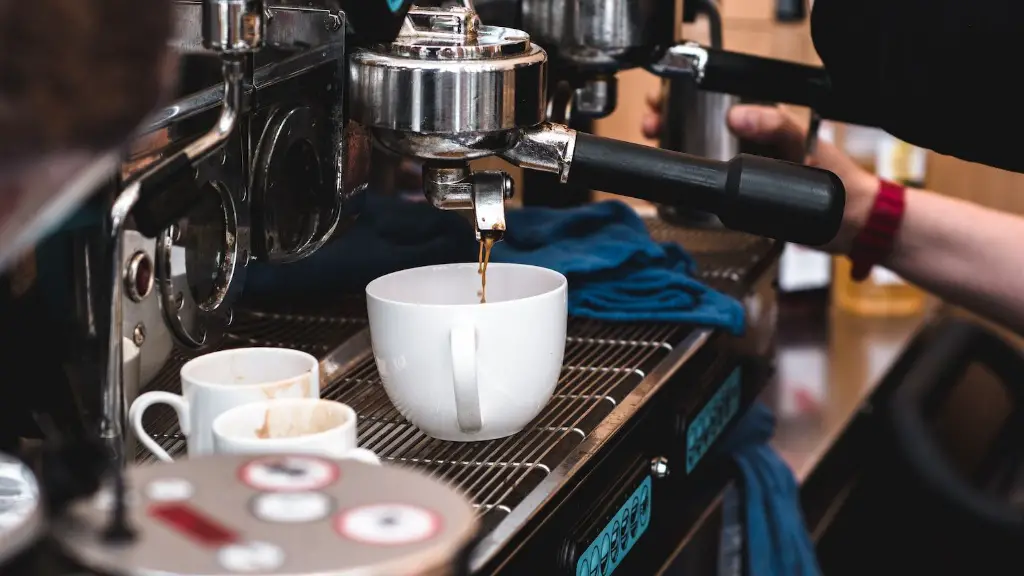How much coffee do Swedes drink?
Coffee has long been a beloved beverage in Sweden, and is a large part of many Swedes’ social culture and hospitality. The Swedish National Food Administration has compiled empirical evidence over the years to track how much coffee Swedes are drinking on average. The results are interesting, and indicate the popularity of coffee and its role in the Swedish lifestyle.
To start, the results concluded that around 85 percent of Swedes consume some form of coffee at least once a day. Moreover, more than half of all Swedes drink more than three cups a day and some as many as eight. On average, each Swede drinks four cups of coffee a day – that’s more than twice the amount of people in the US who drink the same amount.
The relationship Swedes have with coffee goes beyond simply the quantity of it being drank. Each cup of coffee is a ritual for many Swedes and it is often accompanied by traditional customs. Coffee is also a major part of Swedish social life, where it is customary to gather and share food and drinks together.
For some, coffee is an integral part of their day, and studies have shown that Swedes are more likely to choose to get together and hang out with a cup of coffee rather than drink alcohol. Additionally, many Swedes turn to coffee as a source of comfort in times of stress and during difficult times. As such, coffee has become a major part of the lifestyle for a significant portion of the population.
Professional baristas in Sweden are highly skilled and create unique cups of coffee, adding art and craft to their work. Swedish city cafés and restaurants also often offer a wide selection of coffees, both traditional and unusual, including special blends and roasts. Coffee is an important part of the Swedish lifestyle and culture and plays an influential role in many aspects of society.
The Rise of Home Coffee Roasting
As the popularity of coffee has grown in Sweden and the demand for unique blends and roasts has increased, the trend of home coffee roasting has become increasingly popular. Home roasting is the process of roasting green coffee beans at home in order to brew the perfect cup. Increasingly, Swedes are turning to home roasting to be able to enjoy the freshest and best quality coffee. Additionally, those who are passionate about the hobby of home roasting can have more control and creative freedom over the tastes and blends that they can create. The methods for home roasting range from high end espresso machines to roasting by hand in hot air balloons.
Home roasting has also opened up opportunities for entrepreneurs to start their own coffee roasting companies and share their love of coffee with others. Coffee roasters in Sweden are now well known across the world, with many importing the beans from all over the world. These coffee roasters are often admired for their dedication to their craft and the unique coffee blends they create. Home roasting has been a major boost to the Swedish coffee industry and has been a fundamental part of its success.
Organic and Fair Trade Coffee
Organic and Fair Trade certifications are also becoming increasingly popular when it comes to coffee consumption in Sweden. Most major coffee chains and retailers now offer Organic and Fair Trade certifications, meaning that the coffee beans are grown and produced sustainably and ethically. These certifications have helped to create a more socially conscious coffee culture in Sweden, where sustainability and ethical production is a priority. Consumers in Sweden are increasingly seeking these certifications when buying their coffee, indicating the major shift in attitudes towards sustainability when it comes to the coffee industry.
Organic and Fair Trade certifications have had a positive impact on the Swedish coffee industry and have ensured a more ethical supply chain for farmers and labourers. These certifications have also helped to create more transparency and accountability for the industry, ensuring that the farmers and labourers are properly compensated and do not face exploitation. Fair Trade and Organic certifications have been crucial in improving the overall quality of the Swedish coffee industry and encouraging sustainability.
Environmental Impact of Growing Coffee
Coffee production and consumption can also have a negative impact on the environment. Coffee is grown in huge plantations which often require excessive use of pesticides and fertilizer, leading to a negative impact on the environment and the local wildlife. Additionally, the traditional methods of coffee farming are often unsustainable, leading to the depletion of water resources, soil erosion and a decrease in biodiversity.
In response, many Swedish coffee companies and roasters have begun to shift towards more sustainable production methods, such as organic, permaculture and shade-grown farming. These methods are designed to reduce the environmental impact of farming and ensure that the land is sustainably used in the long-term. The shift towards more sustainable methods of coffee production has helped to minimise the environmental impact of growing coffee beans, and has allowed for a more ethical and sustainable coffee industry.
The Impact of Technology
Technological advances have also had a positive impact on the Swedish coffee industry. Machines such as espresso machines, coffee grinders and automatic coffee makers have made it easier to make great tasting coffee at home and in cafés. Additionally, with the rise of the internet, consumers have access to a wide variety of beans and roasts from around the world, giving them more options when it comes to coffee. This has also made it easier for coffee companies to reach new markets and get their coffee to customers around the world.
In addition to this, the internet has also allowed companies to connect with their customers and gather feedback on their products through reviews and surveys. This has allowed companies to make more informed decisions when it comes to their coffee and allowed them to create better products for their customers. Technology has had a significant impact on the Swedish coffee industry and has made it easier for companies to reach new markets and customers.
Social and Economic Impact of Coffee
Coffee provides international opportunities and is a large part of the Swedish economy. Coffee beans are often imported from tropical countries such as Ethiopia and Colombia, which gives local farmers and communities a way to make a living. Additionally, the production of coffee beans has been found to be an important source of income for many of the developing countries that have a significant presence in the market.
Furthermore, coffee has a major role in Swedish social life and culture. Cafés and restaurants are major hubs for socialising and meeting people, and coffee is often used as a way to welcome guests into people’s homes. Coffee is often associated with relaxation, enjoyment and conversation and is a major part of Swedish social life.
Coffee also plays an important role in the Swedish economy as a whole. Many companies produce coffee and related products, creating jobs and contributing to the economy. Additionally, coffee consumption helps to create demand for sustainable and ethical production methods, which helps to ensure that producers are treated fairly and compensated for their work. Coffee consumption in Sweden has a large impact on the economy and provides international opportunities for those involved in it.
Conclusion
Swedes are some of the biggest coffee drinkers in the world, drinking an average of four cups a day. Coffee plays an important part in Swedish culture and has a major role in the country’s social life and economy. Additionally, home roasting, organic and fair trade certifications and the impact of technology all have had a positive impact on the Swedish coffee industry. Coffee is an important part of the Swedish lifestyle, culture and economy and has a large influence on many aspects of society.




